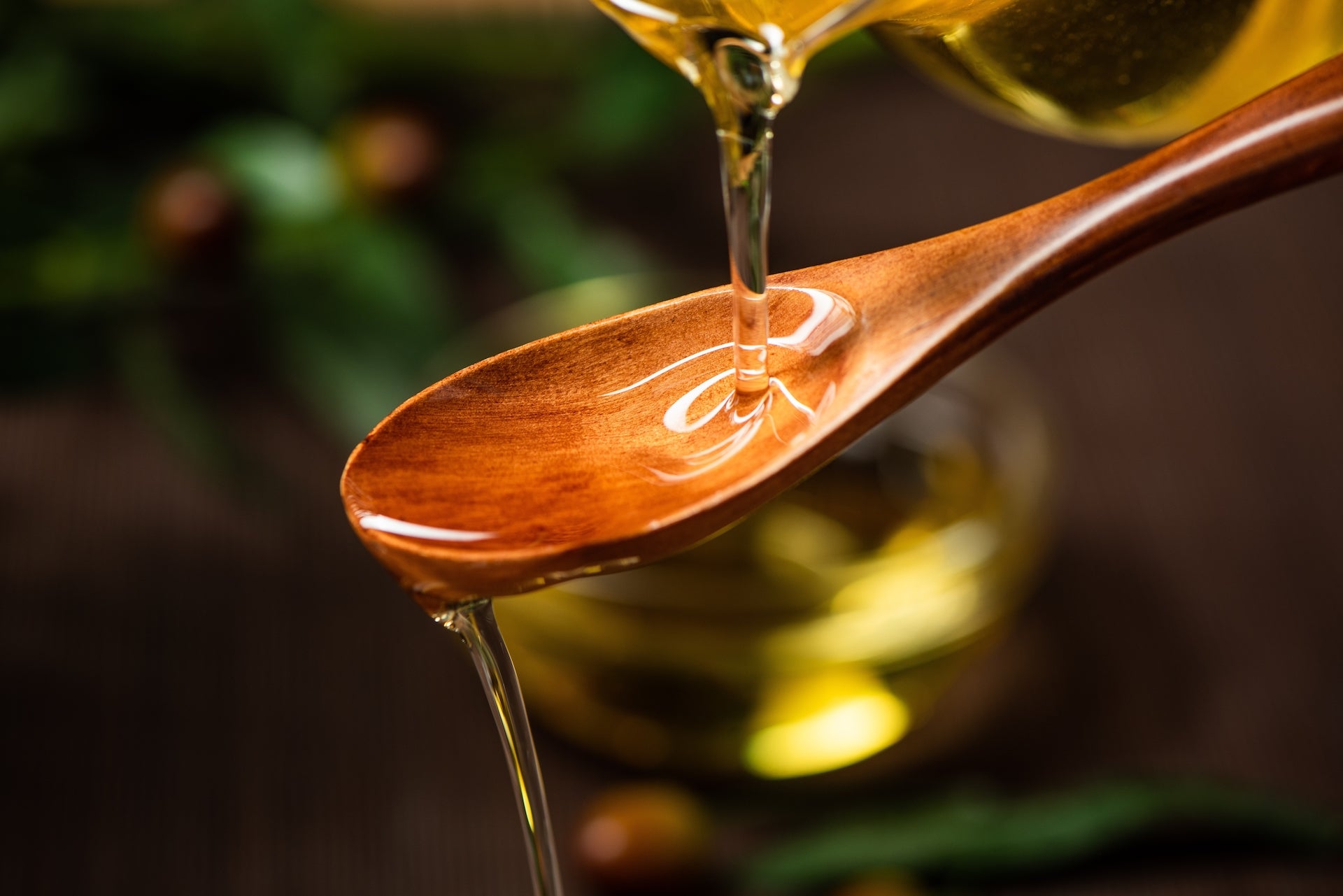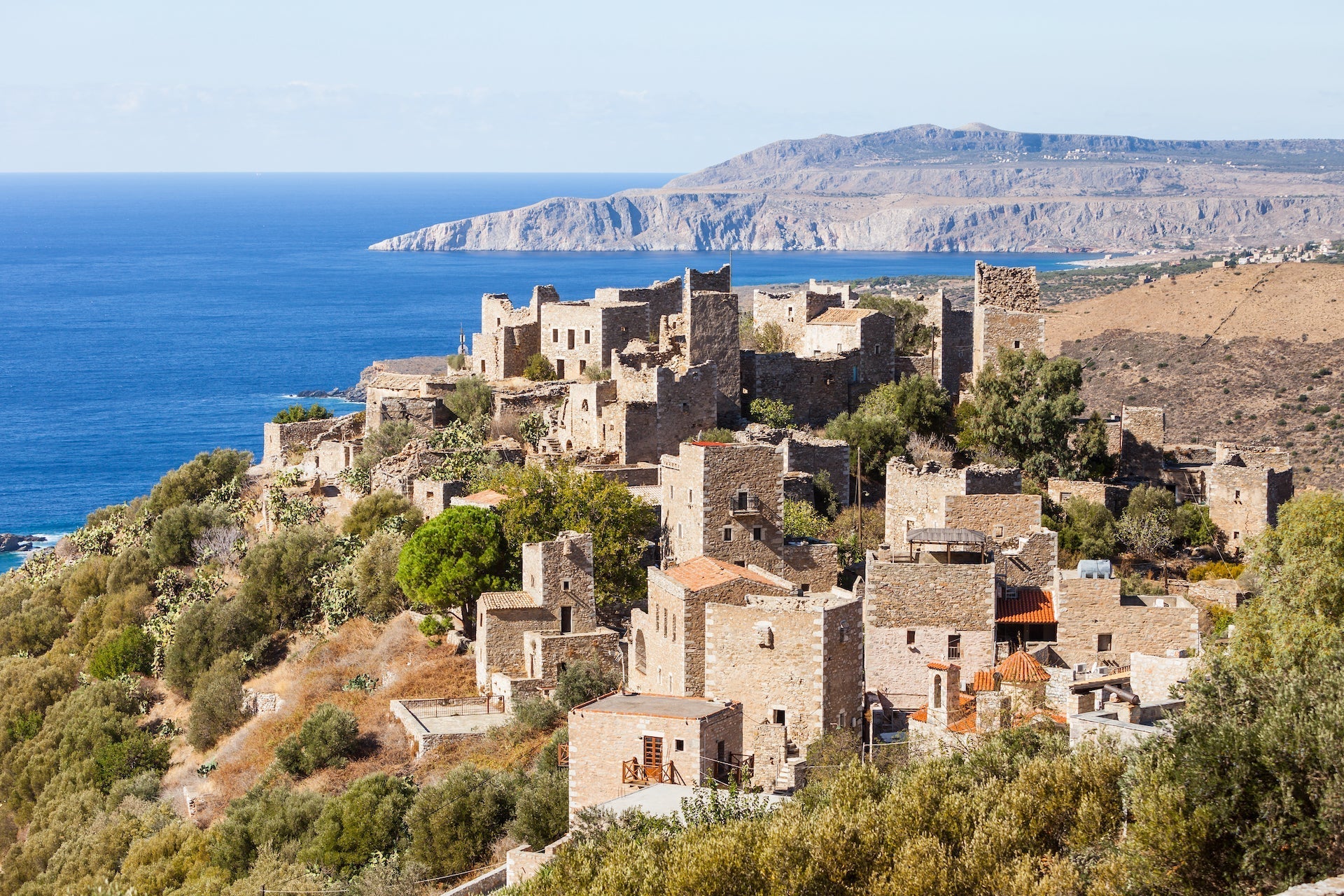Article: How to Choose the Best Olive Oil

How to Choose the Best Olive Oil
Pro Tips & Top-Rated Picks
Do You Speak Olive Oil? Educate Yourself
Know exactly what to look for when shopping for olive oil, and elevate your daily rituals with confidence. From nutritional excellence to culinary distinction, understanding what makes a truly great olive oil is essential. Whether you're impressing friends at the dinner table, making informed choices in the grocery aisle, or simply enhancing your wellness journey, consider this your guide to choosing olive oil with intention and taste.
Opt For “Extra Virgin Olive Oil” For Top Quality
Let’s talk purity, because when it comes to olive oil, integrity matters. Not all oils are created equal, and the label extra-virgin olive oil is more than just a title. It’s your assurance of unrefined quality, free from chemicals and untouched by heat. Think of it as olive oil’s VIP status, earned, not given. And if you're wondering how to tell the real from the rest, you're exactly where you need to be.
Search For The Term “Cold-Pressed”
This is the second term to pay close attention to: cold-pressed. It signifies that your extra-virgin olive oil has been extracted without heat or chemicals, preserving its natural integrity from fruit to bottle. What you’re getting is pure, unadulterated olive oil, rich in nutrients, antioxidants, and that signature full-bodied flavor that elevates even the simplest dish.
And yes, it matters. Cold-pressed extra virgin olive oil is naturally rich in polyphenols, potent antioxidants known to combat oxidative stress with the force of Greek Gods taking on Titans. Add heart-healthy monounsaturated fats that help balance cholesterol levels, and what you get is not just a culinary staple, but a functional, flavorful force of nature.
Look For Certifications EU or USDA Organic Labels
Let the labels guide you. When choosing an extra virgin olive oil, spotting certifications such as EU Organic or USDA Organic is a key indicator of quality and authenticity. These marks aren’t just decorative, they reflect a commitment to organic farming standards and traceable origins. Consider it your green light to go organic. And if you're already stocking certified organic products, you’re not just making a smart choice, you’re well ahead of the crowd.
Choose Light-Blocking Packaging To Preserve Freshness
Even though extra virgin olive oil thrives under the sun, casting its glistening golden glow into the world like a gift from the Gods, its prolonged exposure to light is its quiet enemy. To preserve its delicate flavor and nutritional integrity, choose oils stored in tin containers or opaque glass bottles designed to shield against harmful rays. Even the finest olive oils need sun protection, think of it as their version of SPF.
Check The Expiration Date
Unlike fine wine, extra virgin olive oil doesn’t improve with age. Its excellence is at its peak shortly after milling, bold, peppery, and just the right amount of bitter, all signs of superior quality. Those distinctive notes aren’t attitude; they’re the signature of freshness and a high concentration of polyphenols that both connoisseurs and nutritionists appreciate. So, when browsing the shelves, always check the expiration date, because with extra virgin olive oil, freshness truly makes all the difference.
It Must Be Stored In A Cool Place
Extra virgin olive oil may love the Mediterranean sun while it's still on the tree, but once bottled, it prefers a cooler climate. Exposure to high temperatures can compromise both its flavor and nutritional value. Think of it much like a fine skincare product, heat is simply not its friend. When purchasing, avoid bottles placed in direct sunlight or near heat sources. At home, it’s wise to keep a small amount within reach for everyday use, but store the rest in a cool, dark cupboard. After all, even the finest olive oils deserve to keep their cool.
Traceability & Transparency In Production
When it comes to premium extra virgin olive oil, transparency isn’t just appreciated, it’s essential. Ask the meaningful questions: Who produced it? When was it harvested? Where were the olives grown, and which variety was used? These details aren’t just trivia; they offer insight into quality, authenticity, and origin. Think of it less as an interrogation and more as getting to know the story behind what’s on your table. In industry terms, it’s called traceability, but in real life, it’s called peace of mind.
The Harvest Season Matters
No, we’re not referring to the holidays, but in the world of extra virgin olive oil, timing is everything. Olives are typically harvested in the winter months, when they reach peak ripeness and are ready to yield their finest, most flavorful oil. Whether you're using it for a generous drizzle or a quick sizzle, knowing the harvest season can be the key to selecting a truly premium organic extra virgin olive oil. Consider it a vital detail on your quality checklist.
Small Batch - Limited Production
Nature doesn’t do mass production, exclusivity comes naturally. Organic extra virgin olive oil, by its very nature, is crafted in small, carefully curated batches. This level of purity and attention to detail brings with it a sense of rarity. So, if you’re looking to stock up on quality, now’s the time. Limited quantities, exceptional flavor, are you ready to claim yours before it’s gone?
Everyday Luxury, Without the Price Tag
Extra virgin olive oil is made for daily enjoyment, not reserved for special occasions or extravagant budgets. True quality doesn’t need to come with a high price. Save the splurges for fashion and fine jewelry; in the kitchen, the only gold standard should be the rich hue of your olive oil. Accessible, exceptional, and always in good taste.
Read The Lab Analysis
For those who appreciate detail, reading the lab analysis can offer valuable insight into the quality of your extra virgin olive oil. From polyphenol levels and chemical composition to pesticide testing, these figures speak volumes about purity and nutritional value. With a little attention, you might just find yourself navigating olive oil specs like a pro—knowledgeable, discerning, and a bit healthier for it.
Choose Extra Virgin Olive Oil From Renowned Regions
When it comes to extra virgin olive oil, provenance is more than a detail, it’s a marker of excellence. Renowned regions like Greece, Italy, and Spain have earned global acclaim for producing distinct, high-quality oils. Each brings its own character to the table, shaped by centuries of tradition and terroir. And while we don’t like to play favorites, Greek Organic Extra Virgin Olive Oil continues to set the standard.
Premium Greek Organic Extra Virgin Olive Oil
Yes, the name may be long, but so is its list of virtues. Sourced from the ancient groves of Messara, Crete, Premium Greek Organic Extra Virgin Olive Oil is among the finest, and most highly rated options available today. It is cold-pressed, fully organic, and crafted with care from tree to table.
Curious to verify? Just turn the bottle. You’ll find:
- Harvest date
- LOT number
- Handwritten bottle number
- Bottling facility (organic certified)
- Producer code (organic certified)
- And absolute transparency—nothing hidden, nothing artificial.
Scroll down to explore a full comparison table highlighting how we stand apart from other brands.

Beautiful packaging is simply the finishing touch, elegant, minimal, and ideal for thoughtful gifting. A little extra charm never hurts.
Food Of The Gods
Inspired by the mythical nourishment of Mount Olympus, Ambrosia & Nektar carries the legacy of divine flavor into the modern day. Our products are crafted to elevate everyday rituals with purity, wellness, and timeless quality.
Encased in elegant sustainability and designed with care, each drop is a tribute to the soul of organic living.
And this story? It begins with “They o-lived happily ever after…”

